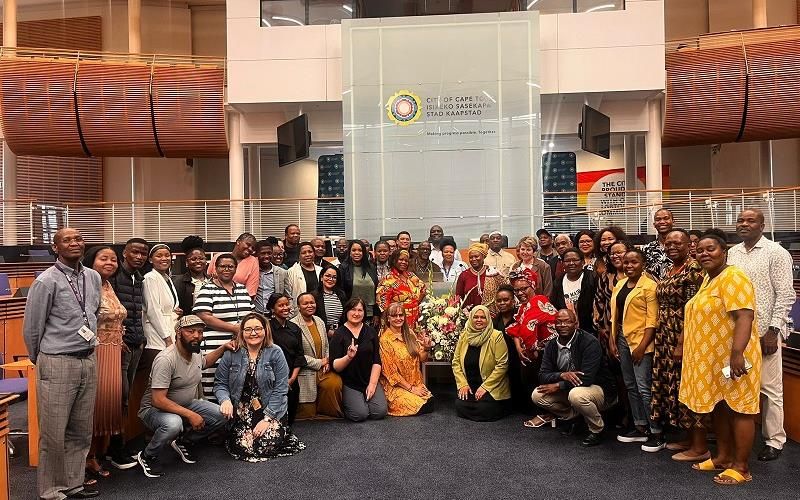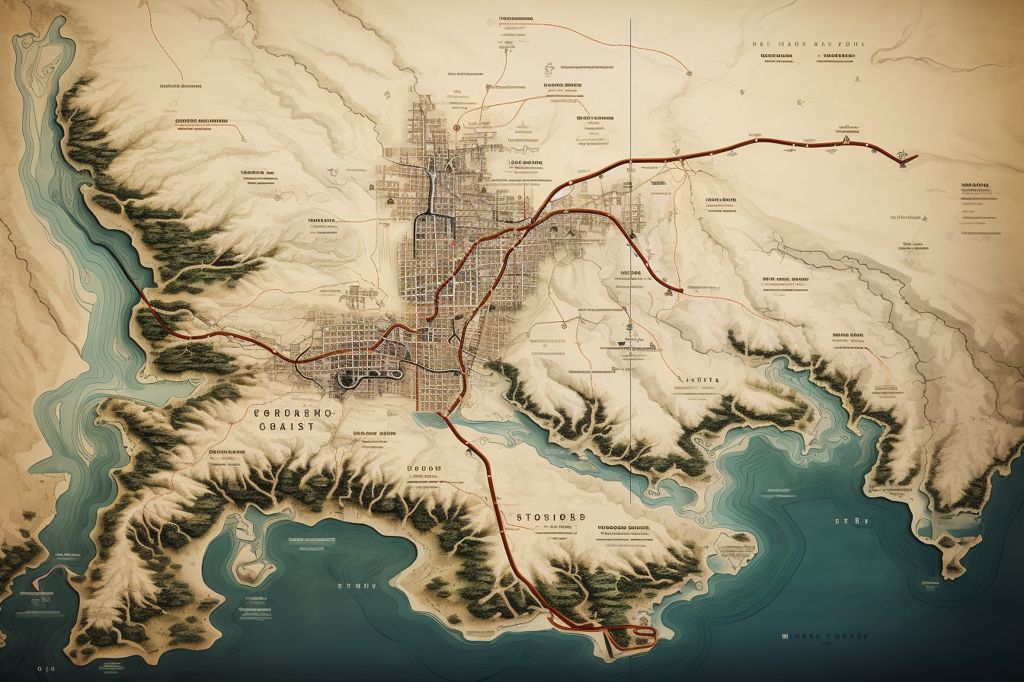Transport Month in South Africa celebrates the nation’s progress in the transportation industry, highlighting advancements in road infrastructure, rail networks, train production, aviation sector development, and public transport investment. The government is also dedicated to fostering equality and empowerment in the transport sector, particularly for historically disadvantaged individuals. The month also commemorates notable milestones for six transport entities, including Airports Company South Africa (ACSA), Air Traffic Navigation Services (ATNS), South African National Roads Agency Limited (SANRAL), South African Civil Aviation Authority (SACAA), South African Maritime Safety Authority (SAMSA), and Cross-Border Road Transport Agency (C-BRTA). The government’s investment in infrastructure development, equality and empowerment, and innovation will ensure a brighter future for all South Africans.
The transport sector in South Africa plays a crucial role in stimulating economic growth and improving the lives of its citizens. In October 2023, the nation commemorates Transport Month, an annual event that emphasizes the successes and progress in South Africa’s transportation industry.
Embracing Heritage and Progress
The October Transport Month campaign was initiated at the end of September, coinciding with South Africa’s National Heritage Month. The event highlights the country’s rich cultural heritage and accentuates the essential role transportation plays in both socio-economic spheres.
Throughout the month, the South African government will showcase advancements across various transportation modes, including road infrastructure, rail network advancements, cutting-edge train production, aviation sector development, and public transport investment.
Tackling Inequality and Empowering Underserved Communities
Despite the country’s progress, the majority of South Africa’s youth, particularly girls and women, still face substantial challenges in terms of unemployment, skills development, and economic participation. Underserved groups, including women and historically marginalized individuals, continue to endure significant income and wealth disparities, hindering their active engagement in society.
In order to address these challenges, the South African government is dedicated to fostering equality and empowerment in the transport sector. As an example, the Ports Regulator of South Africa (PRSA) is working to create equal opportunities for historically disadvantaged individuals to access the country’s port system, ensuring increased participation in port infrastructure, terminal management, services, and activities.
Furthermore, the government collaborates with various stakeholders to create and implement Transport Sector Codes, which are crucial for transforming the sector and addressing imbalances in ownership patterns.
Commemorating Milestones in Transport Sector Entities
October Transport Month also celebrates notable milestones for six of South Africa’s transport entities, including 30-year anniversaries since the inception of Airports Company South Africa (ACSA) and Air Traffic Navigation Services (ATNS), as well as 25-year anniversaries for the South African National Roads Agency Limited (SANRAL), South African Civil Aviation Authority (SACAA), South African Maritime Safety Authority (SAMSA), and Cross-Border Road Transport Agency (C-BRTA).
These organizations have played vital roles in shaping the country’s transport industry, impacting the lives of ordinary South Africans in various ways.
ACSA and ATNS: Trailblazers in Aviation
Over the past three decades, ACSA and ATNS have undergone significant evolution, receiving international recognition for their commitment to excellence. The 2010 FIFA World Cup exhibited South Africa’s aviation prowess, with ACSA airports playing an essential role in the successful hosting of the event.
Additionally, ACSA and ATNS’s advisory services have been invaluable in sharing best practices with airports globally, solidifying their status as industry leaders. The two organizations have also spearheaded the development of remote digital towers and space-based Automatic Dependent Surveillance–Broadcast (ADS-B) technology, improving air traffic control and surveillance capabilities across Africa.
SANRAL: Stimulating Economic Recovery through Infrastructure Development
SANRAL, responsible for the construction and maintenance of the national road network, is a central driver of South Africa’s economic recovery through its infrastructure development program. The agency’s procurement policy mandates that 30% of major upgrade projects be reserved for small, medium, and micro-sized enterprises (SMMEs), including businesses owned by youth and women.
By offering skills development programs, scholarships, and bursaries for high school and tertiary students, SANRAL is also investing in the next generation of engineers and construction professionals, ensuring the country’s ongoing growth and development.
SACAA: Safeguarding the Skies
In the past 25 years, SACAA has maintained an impeccable safety record in South Africa’s scheduled airline operations, with a 0% fatal accident rate. The country has also achieved a prominent position in the International Civil Aviation Organization (ICAO) safety audit rankings, exceeding the 90% mark and becoming the first African nation to reach this milestone.
The dedication and hard work of SACAA have contributed to South Africa’s reputation as a global leader in aviation safety, with the nation maintaining its Category 1 status with the United States Federal Aviation Administration (FAA) and recognition by the European Union (EU) and the United States Transport Security Administration (TSA).
The Path Forward: Enhancing Transport Infrastructure
As South Africa looks ahead, the October Transport Month campaign serves as a reminder of the nation’s accomplishments in the transport sector and a call for continued progress. By investing in infrastructure development, promoting equality and empowerment, and fostering innovation, the country will continue to enhance its transport infrastructure, ensuring a brighter future for all South Africans.
1. What is Transport Month in South Africa?
Transport Month in South Africa is an annual event that highlights the progress and successes in the transportation industry. It celebrates advancements in road infrastructure, rail networks, train production, aviation sector development, and public transport investment.
2. What is the significance of Transport Month in South Africa?
Transport Month highlights the crucial role that the transport sector plays in stimulating economic growth and improving the lives of South Africans. It also emphasizes the government’s commitment to fostering equality and empowerment in the sector, especially for historically disadvantaged individuals.
3. What challenges do underserved communities face in the transport sector in South Africa?
Underserved communities in South Africa, including women and historically marginalized individuals, face significant challenges in terms of unemployment, skills development, and economic participation. They continue to endure substantial income and wealth disparities, hindering their active engagement in society.
4. How is the government addressing these challenges?
The South African government is dedicated to fostering equality and empowerment in the transport sector. For example, the Ports Regulator of South Africa (PRSA) is working to create equal opportunities for historically disadvantaged individuals to access the country’s port system, ensuring increased participation in port infrastructure, terminal management, services, and activities. The government also collaborates with various stakeholders to create and implement Transport Sector Codes, crucial for transforming the sector and addressing imbalances in ownership patterns.
5. Which transport entities are commemorated during Transport Month?
October Transport Month celebrates notable milestones for six of South Africa’s transport entities. These include Airports Company South Africa (ACSA), Air Traffic Navigation Services (ATNS), South African National Roads Agency Limited (SANRAL), South African Civil Aviation Authority (SACAA), South African Maritime Safety Authority (SAMSA), and Cross-Border Road Transport Agency (C-BRTA).
6. What contributions have ACSA and ATNS made to the aviation industry?
ACSA and ATNS have undergone significant evolution over the past three decades, receiving international recognition for their commitment to excellence. They played a vital role in the successful hosting of the 2010 FIFA World Cup, and their advisory services have been invaluable in sharing best practices with airports globally. The two organizations also spearheaded the development of remote digital towers and space-based Automatic Dependent Surveillance–Broadcast (ADS-B) technology, improving air traffic control and surveillance capabilities across Africa.
7. How is SANRAL stimulating economic recovery through infrastructure development?
SANRAL is a central driver of South Africa’s economic recovery through its infrastructure development program. The agency’s procurement policy mandates that 30% of major upgrade projects be reserved for small, medium, and micro-sized enterprises (SMMEs), including businesses owned by youth and women. SANRAL is also investing in the next generation of engineers and construction professionals by offering skills development programs, scholarships, and bursaries for high school and tertiary students.
8. What is SACAA’s safety record, and how has it contributed to South Africa’s reputation in aviation safety?
In the past 25 years, SACAA has maintained an impeccable safety record in South Africa’s scheduled airline operations, with a 0% fatal accident rate. The country has also achieved a prominent position in the International Civil Aviation Organization (ICAO) safety audit rankings, exceeding the 90% mark and becoming the first African nation to reach this milestone. SACAA’s dedication and hard work have contributed to South Africa’s reputation as a global leader in aviation safety, with the nation maintaining its Category 1 status with the United States Federal Aviation Administration (FAA) and recognition by the European Union (EU) and the United States Transport Security Administration (TSA).








